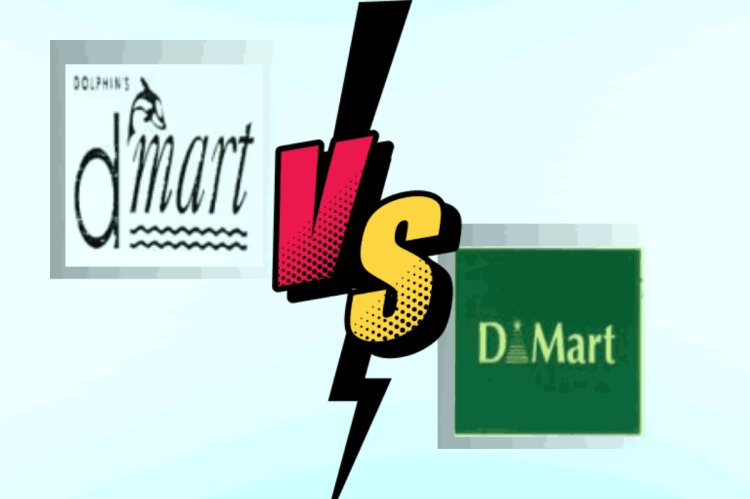Dolphin Mart Private Limited v. Avenue Supermarts Limited & Anr
The case of Dolphin Mart Private Limited vs Avenue Supermarts Limited & Anr revolves around a trademark dispute between the Plaintiff, who owns the composite trademark "d'mart Exclusif" for home decor and gifting solutions, and the Defendant, Avenue Supermarts Ltd., which applied for registration of the trademark "D MART" for its supermarket business. The Plaintiff alleged trademark infringement, but the court ruled in favour of the Defendant, rejecting the infringement claim and emphasizing the importance of considering trademarks as a whole and adhering to the anti-dissection rule in assessing deceptive similarity.

Dolphin Mart Private Limited v. Avenue Supermarts Limited & Anr
CS(COMM) 177/2017
Decided on 21 August 2023
Brief Facts:
In 1992, the Plaintiff created and adopted the name "d'mart Exclusif" for their home decor and gifting solutions. They have since obtained registrations of d'mart composite trademarks in Classes 14, 21, and 25. In contrast, the Defendants were involved in the supermarket business and have applied for registration of the trademark D MART in the same classes. The Plaintiff filed a lawsuit against the Defendants for trademark infringement, alleging that the Defendants' use of the name D MART was similar to their own d'mart Exclusif trademark. The case is now before the Hon'ble Court to determine whether individual elements of a composite registered trademark can be separated for the purpose of analysing deceptive similarity.
Plaintiff’s Contentions:
According to the plaintiff, the defendants have infringed upon the plaintiff's statutory rights by using the 'D MART' trademark. The plaintiff alleges that this infringement violates Section 29(1) and (2)(c) of the 1999 Act, particularly because the plaintiff's 'd'mart' trademarks are registered in Classes 14, 21, and 25.
Defendants Contentions:
In a legal dispute, the accused party claimed ownership of the composite label "DMART" as a registered trademark. Both the plaintiff and the defendant had registered trademarks in the same classes, making it difficult to pursue an infringement action. The defendant argued that Section 28(3) in conjunction with Section 30(2)(e) of the 1999 Act prohibited such an action. Additionally, to determine whether there was deceptive similarity between the trademarks under Section 29, the rival marks had to be assessed as a whole.
Court’s Judgement:
The court rejected the Plaintiff's claim of trademark infringement, stating that since both parties were registered proprietors of their respective trademarks in Classes 14 and 21, an action for infringement could not be maintained under Section 28(3) read with Section 30(2). Only an action for passing off would lie. Hence, the analysis for infringement was confined to the Defendant's impugned trademark in Class 25.
Regarding the Plaintiff's entitlement to claim infringement under Class 25, the court conducted a deceptive similarity analysis and concluded that there was no deceptive similarity between the competing trademarks. Thus, it was held that no infringement lies and there is no possibility of confusion on the part of the public.
The court clarified that the term "d mart," whether considered as a whole or when the letter "d" is analysed separately, does not qualify for distinctive or dominant part protection within the trademark. Furthermore, the term "mart" is generic and commonly used in trade, making it ineligible for protection. Thus, the court noted that even if the Plaintiff had sought registration of the wordmark, it would not have succeeded. The court explained the "anti-dissection rule" and reiterated that conflicting composite marks are to be compared by looking at them as a whole, rather than breaking the marks into their parts for comparison.
Regarding the Plaintiff's entitlement to claim passing off under Classes 14 and 21, the court noted that there was no deceptive similarity between the rival marks taken as a whole. Moreover, there was no damage to the goodwill or reputation of the Plaintiff. The court held that the Plaintiff had failed to make out a prima facie case in its favour and balance of convenience also does not lie in favour of the Plaintiff and denied the injunction. The court affirmed that the defendant, Avenue Supermarts Ltd., using the trademark "DMART," did not create deceptive similarity or identity with the plaintiff's mark. It was deemed improbable to cause confusion among a reasonable person.
Court Analysis:
The court ruled in favour of Avenue Supermarts Ltd in the case of Dolphin Mart Private Limited vs Avenue Supermarts Limited & Anr. The plaintiff's claim of trademark infringement was rejected, and only an action for passing off would be applicable. The court found no deceptive similarity between the rival marks in Classes 14 and 21, and no damage to the goodwill or reputation of the plaintiff. The defendant's use of the trademark "DMART" was unlikely to cause confusion among a reasonable person. The court emphasized the importance of considering trademarks as a whole, adhering to the anti-dissection rule, and assessing the likelihood of confusion or deception in determining trademark infringement and passing off claims.












